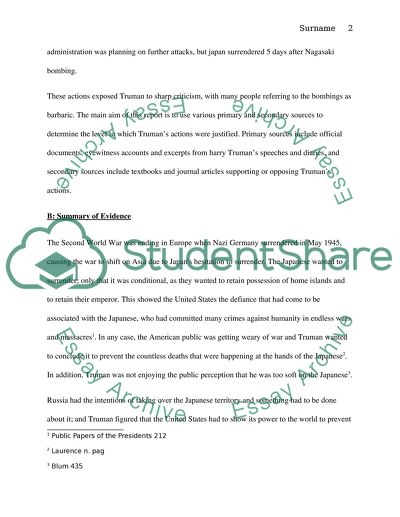Cite this document
(“To What Extent Was Truman's Decision to Drop the Atomic Bomb Justified Research Paper”, n.d.)
Retrieved from https://studentshare.org/history/1443337-to-what-extent-was-truman-s-decision-to-drop-the
Retrieved from https://studentshare.org/history/1443337-to-what-extent-was-truman-s-decision-to-drop-the
(To What Extent Was Truman'S Decision to Drop the Atomic Bomb Justified Research Paper)
https://studentshare.org/history/1443337-to-what-extent-was-truman-s-decision-to-drop-the.
https://studentshare.org/history/1443337-to-what-extent-was-truman-s-decision-to-drop-the.
“To What Extent Was Truman'S Decision to Drop the Atomic Bomb Justified Research Paper”, n.d. https://studentshare.org/history/1443337-to-what-extent-was-truman-s-decision-to-drop-the.


